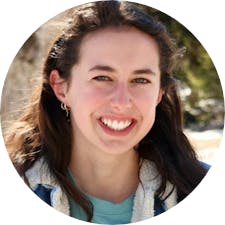“Are you coming home tomorrow?” I texted my mom on my third day of social isolation, still in a hazy state of heartbreak and denial and seeking a familiar comfort.
A minute later, she responded: “This makes me sad. I don’t think so.”
Not the answer I wanted, but the one I knew was coming. As an internal medicine physician at the Seattle Swedish Medical Hospital, my mother had finished her four shifts for the week. And yet she still had to stand by on call, waiting.
At the time, internal hospital projections said it would be 10 days until Seattle — where the first American coronavirus death took place — looked like Italy. This wasn’t hard to believe: All over the city, hospitals had canceled all elective surgeries and non-essential appointments in order to transform entire wings to prepare for the coming influx of Covid-19 patients. On a soccer field where I used to play, they’d begun construction of a 200-bed field hospital. By all accounts, it would be mere days until the healthcare systems were overrun and overextended — and so my mom stayed, to linger amidst the strange calm that preceded the terrifying, inevitable storm of patients.
After I left for college, my family moved to North Central Washington, with my mom commuting in and out of Seattle for work. Now, she remains in the city alone, unable to return to her family, and each day that passes without her feels like a tremendous loss. It may be safer for me out here, but it is stranger; especially now that the physical presence of my mom has been replaced with a speakerphone that occupies the fifth spot at the dinner table.
Already, my mother is beginning to feel the strain. At 3 a.m. on the same night my mom confirmed she would not be returning home, she checked herself into urgent care with unusually high blood pressure accompanied by a serious anxiety attack. This was the result of a vicious cycle of news consumption and somber conference calls in regards to ventilators, masks, fatality rates and testing availability. In an eerie late-night role reversal, she was reassured by the urgent care specialist that many other doctors felt the same way, and then dispatched. Moments like those challenge my own false preconceptions about healthcare workers, who seem like these invincible and untouchable beings that will swoop in to save us all. In reality, they’re significantly more vulnerable than most — and their ability to effectively do their jobs hinges on us.
In fact, for many healthcare providers, it is a manner of when, not if, they will become patients themselves. Nationwide, many are opting to sew their own masks or use bandanas as the medical supply quickly depletes. Additionally, all over the country, the burden of hazardous care is fragmenting families like mine, as many clinicians opt to separate from loved ones instead of risking exposing them to the virus.
In the weeks leading up to my departure from Middlebury, I called my mom once a day (if not multiple times) to worry and ask ridiculous questions and then worry some more. I relied on her in each moment of coronavirus-adjacent uncertainty while still on campus — but now it had become apparent that I needed to stop. I needed to stop asking her if my persistent cough meant the world was ending. I needed to stop pretending she was this untouchable and omniscient superwoman who could instantly assuage my unease. (I’m now forbidden from uttering anything along the lines of “I’m bored” to her, as she reminded me that she would give up her frenzied panic and despair for boredom in an instant.) What she is up against is unimaginable, and far more dismal than my not-leaving-the-couch and missing-my-friends grumpiness will ever be. Last week, my mom jokingly asked who I thought my 14-year old brother would prefer as a legal guardian. I wondered how much pain was disguised behind her lighthearted tone.
It may be months before I see my mom again, but this time I’m not across the country at Middlebury. I’m mere hours away, wrangling my siblings in some messy semblance of fabricated mothering, trying and failing to fill her shoes. The other day, during one of our frequent, petty arguments about whose turn it was to load the dishwasher, my younger brother uttered one of his favorite lines: “Don’t tell me what to do, you’re not my mom.” But then he paused, letting a tiny, nervous laugh escape. “Well, I guess now, you kind of are.”
When we talk about “flattening the curve”, we are not just looking to protect obscure and cryptic bureaucratic systems. The framework of these institutions is comprised of valiant individuals who are not immune, and not superhuman. And yet despite their own humanity and susceptibility, they will continue to show up even if there are not enough ICU beds, or ventilators, or testing kits, or equipment to keep them safe. My mom stays at work for you, miles and hours away from her loved ones. Please, please stay at home for her.
Lily Laesch ’23 is one of The Campus’s Opinion editors.

Lily Laesch '23 is the Campus’s editorial director.
She previously served as an opinions editor and a layout editor.
Laesch is joint majoring in Geography and Political Science with a minor in History, focusing specifically on foreign policy, border relations, international migration flows, and immigration law.
Outside of the newsroom, Laesch plays on the women’s ultimate frisbee team, dances with RIDDIM World Dance Troupe, and leads outdoor orientation trips.

![Copy of Editorial [Susanna] (3) (1) (2) (1).JPG](https://snworksceo.imgix.net/mbc/11c1e285-1b2c-4ee9-9d20-4a2f24335290.sized-1000x1000.JPG?w=1500&ar=16%3A9&fit=crop&crop=faces&facepad=3&auto=format)

